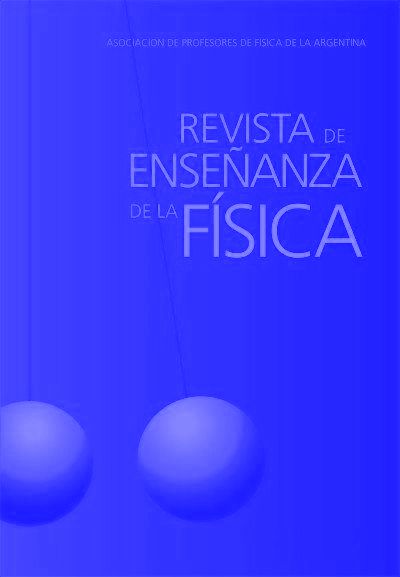Ser, hacer y sentir: emociones, aprendizajes y desarrollo de la identidad docente en la formación inicial de profesores de Física
DOI:
https://doi.org/10.55767/2451.6007.v36.n.47230Palabras clave:
Identidad docente, Saber docente, Práctica profesionalResumen
La práctica profesional es fundamental en la formación inicial de profesores. Es aquí donde desarrollan muchas de las competencias necesarias para llevar adelante su vida profesional. Este tipo de experiencias revelan concepciones implícitas sobre la enseñanza y el aprendizaje, resultando tanto intelectual como emocionalmente desafiantes. Este estudio, analiza distintos registros de una estudiante de profesorado de física durante su práctica profesionalizante y una entrevista a la misma estudiante posterior a la práctica. En relación con su proceso de aprendizaje, los resultados refieren a modificaciones en su conocimiento docente, en escenarios emocionales dinámicos. Aparecen y se analizan también indicadores del desarrollo de la identidad profesional de la practicante
Referencias
Aguiar, O. G., Mortimer, E. F. y Scott, P. (2010). Learning from and responding to students' questions: The authoritative and dialogic tension. Journal of Research in Science Teaching, 47(2), 174-193.
Avraamidou, L. (2014). Studying science teacher identity: Current insights and future research directions. Studies in Science Education, 50(2), 145-179.
Ball, D. L. (2000). Bridging practices: Intertwining content and pedagogy in teaching and learning to teach. Journal of teacher education, 51(3), 241-247.
Bombini, G. (2002). Prácticas docentes y escritura: hipótesis y experiencias en torno a una relación productiva. Ponencia presentada en Primeras Jornadas de Prácticas y Residencias en la Formación Docente, Facultad de Filosofía y Humanidades, Universidad Nacional de Córdoba, Córdoba, Argentina.
Bombini, G. H. y Labeur, P. (2013). Escritura en la formación docente: los géneros de la práctica. Enunciación, 18(1), 19-29.
Carlson, J., Daehler, K. R., Alonzo, A. C., Barendsen, E., Berry, A., Borowski, A., ... y Wilson, C. D. (2019). The refined consensus model of pedagogical content knowledge in science education. En A. Hume, R. Cooper y A. Borowski (Eds.), Repositioning pedagogical content knowledge in teachers’ knowledge for teaching science (77-94). Singapore: Springer.
Chan, K. K. H. y Hume, A. (2019). Towards a consensus model: Literature review of how science teachers’ pedagogical content knowledge is investigated in empirical studies. Repositioning pedagogical content knowledge in teachers’ knowledge for teaching science, 3-76.
Danielo, B. y Coleoni, E. (2024). Aprendizajes de un profesor de física en formación: lo didáctico y lo afectivo. Revista De Enseñanza De La Física, 36(1), 67–78. doi: https://doi.org/10.55767/2451.6007.v36.n1.45313
Hammer, D. y Berland, L. K. (2014). Confusing claims for data: A critique of common practices for presenting qualitative research on learning. Journal of the Learning Sciences, 23(1), 37-46.
Hannula, M. S. (2012). Exploring new dimensions of mathematics-related affect: Embodied and social theories. Research in Mathematics Education, 14(2), 137-161.
Magnusson, S., Krajcik, J. y Borko, H. (1999). Nature, sources, and development of pedagogical content knowledge forscience teaching. En Examining pedagogical content knowledge: The construct and its implications for science education (95-132). Dordrecht: Springer Netherlands.
Padilla, K. y Van Driel, J. H. (2012). Relationships among cognitive and emotional knowledge of teaching quantum chemistry at university level. Educación química, 23, 311-326.
Sanmartí, N. (2002). Necesidades de formación del profesorado en función de las finalidades de la enseñanza de las ciencias. Pensamiento Educativo, Revista de Investigación Latinoamericana (PEL), 30(1), 35-60.
Shulman, L. S. (1987). Knowledge and teaching: Foundations of the new reform. Harvard educational review, 57(1), 1-23.
Sutherland, L., Howard, S. y Markauskaite, L. (2010). Professional identity creation: Examining the development of beginning preservice teachers' understanding of their work as teachers. Teaching and teacher education, 26(3), 455-465.
Veiravé, M. D., Ojeda, M. C., Núñez, C. R. y Delgado, P. M. (2006). La construcción de la identidad de los profesores de enseñanza media: biografías de profesores. Revista Iberoamericana De Educación, 40(3), 1–11. doi: https://doi.org/10.35362/rie4032512
Zembylas, M. (2003). Emotions and teacher identity: A poststructural perspective. Teachers and teaching, 9(3), 213-238.
Zembylas, M. y Barker, H. B. (2002). Preservice teacher attitudes and emotions: Individual spaces, community conversations and transformations. Research in science education, 32, 329-351.
Descargas
Publicado
Número
Sección
Licencia

Esta obra está bajo una licencia internacional Creative Commons Atribución-NoComercial-SinDerivadas 4.0.
Aquellos autores/as que tengan publicaciones con esta revista, aceptan los términos siguientes:Los autores/as conservarán sus derechos de copiar y redistribuir el material, bajo los términos estipulados en la Licencia de reconocimiento, no comercial, sin obras derivadas de Creative Commons que permite a terceros compartir la obra bajo las siguientes condiciones:
- Reconocimiento — Debe reconocer adecuadamente la autoría, proporcionar un enlace a la licencia e indicar si se han realizado cambios. Puede hacerlo de cualquier manera razonable, pero no de una manera que sugiera que tiene el apoyo del licenciador o lo recibe por el uso que hace.
- NoComercial — No puede utilizar el material para una finalidad comercial.
- SinObraDerivada — Si remezcla, transforma o crea a partir del material, no puede difundir el material modificado.
- Los autores/as podrán adoptar otros acuerdos de licencia no exclusiva de distribución de la versión de la obra publicada (p. ej.: depositarla en un archivo telemático institucional o publicarla en un volumen monográfico) siempre que se indique la publicación inicial en esta revista.
- Se permite y recomienda a los autores/as difundir su obra a través de Internet (p. ej.: en archivos telemáticos institucionales o en su página web) antes y durante el proceso de envío, lo cual puede producir intercambios interesantes y aumentar las citas de la obra publicada. (Véase El efecto del acceso abierto).











